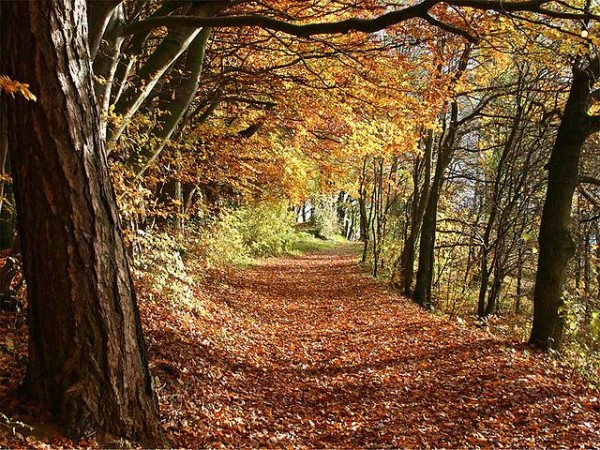With the goal of stirring up even more interest in Murakami between now and October, when the Nobel Prizes are announced, I will post a small piece of Murakami translation/analysis/revelation once a week from now until the announcement. You can see past entries in the series here.
Chapter 10 is mercifully short, which I appreciate (and I’m sure you appreciate) after last week’s massive post. Unfortunately this leaves us very little to look at in terms of cuts. In fact, I’ll be looking at a single line. Not surprisingly, the line is the last line in the chapter, which, we have seen again and again, is frequent bait for cuts by Birnbaum (or his editor). This time, however, it’s just a change.
In Chapter 10, Boku visits the Gatekeeper to ask if he can visit his shadow. The Gatekeeper and the shadow are working in the yard to fix up a wagon, so Boku waits in the Gatehouse (Birnbaum’s great translation of 門番小屋). The shadow comes in to get nails, quickly asks Boku to make a map of the End of the World, and leaves. The Gatekeeper later refuses Boku’s request and tells him he must gut it out until the strange period of settling passes. Boku walks home and on the way stops on the bridge to gaze down at the river. He often walks down to the sandbar to feed the beasts.
And here is Birnbaum’s wonderful rendering of the last paragraph:
As the autumn deepens, the fathomless lakes of their eyes assume an ever more sorrowful hue. The leaves turn color, the grasses wither; the beasts sense the advance of a long, hungry season. And bowing to their vision, I too know a sadness.
Here is the Japanese original:
秋が深まるにつれ、深い湖を思わせるような彼らの目は、哀しみの色を次第に増やしていった。樹木は葉の色を変え、草は枯れ、長く辛い飢えの季節が迫りきていることを彼らに教えていた。そしてそれは老人が予言したように、僕にとってもおそらく長く辛い季節になるはずだった。
I particularly like Birnbaum’s translation of 教えていた because I think many (or maybe just I) would have been tempted to translate that more awkwardly. “Sense” works perfectly.
If you can read the Japanese, though, it’s clear that the last line is heavily altered. I won’t try to improve upon the rest of the paragraph, so I’ll just swap out the last line for one that more closely follows the Japanese:
As the autumn deepens, the fathomless lakes of their eyes assume an ever more sorrowful hue. The leaves turn color, the grasses wither; the beasts sense the advance of a long, hungry season. As the old man forbade, it will likely be a long, hungry season for me as well.
The old man here is the Colonel, but it’s interesting that Birnbaum cuts the reference completely. This got me thinking a little…
We have a 老人 in each section of the narrative – the Colonel and the scientist – but Birnbaum only uses it to refer to the scientist. Murakami alternates between 大佐 (colonel) and 老人 (old man) for the Colonel, but Birnbaum keeps it strictly as the former. Just another subtle way the two narratives of the story are linked, which doesn’t completely translate in English. The two characters don’t really have the same role in each section, as will become clear later in the book, but I think Murakami has set them in parallel more closely in Japanese by referring to both as “old man.”
[Rubin’s 2024 version:
As autumn deepened, their eyes, so reminiscent of deep lakes, would gradually take on a sorrowful hue. The leaves of the trees would change color and grasses would wither, telling them that the long, hard season of starvation was pressing in on them. And for me as well, as the old man had predicted, it would likely be a long, hard season.
]
Make sure you also check out my update on last week’s post. Matt from No-Sword caught a miss on my part: I had no idea that オウム could mean anything other than a crazy religious cult or the noise for a chant.
[Rubin’s version added on 2025.09.09.]


That is a nice translation, and interesting handling of 教える as you say. At first I was thinking that maybe he handled it that way because the original syntax is weird — I was assuming that Murakami meant that all the natural changes together foretold the winter, which seems formally incompatible with the structure “XはAい、YはBい、ZにCう” = technically the subject of the third clause must be Y, not X and Y together. But looking at it more closely, I think that the syntax is fine, and the problem was the my assumption. “{The trees change the color of their leaves} + {The grasses wither and [in so doing] inform the animals that a long, hungry season is coming}” — that makes fine sense, really. Forest animals don’t care about leaves, but they sure do care about grass. Conclusion: Something about asses and u and me (wait, no, just me).
I am in two minds about that added “sadness” though. As poetry it’s great, granted, but I think I prefer my Boku tougher and with more ironic detachment than that.
Pingback: Magazines | How to Japanese
Pingback: Warmth | How to Japanese
Pingback: Embrace | How to Japanese